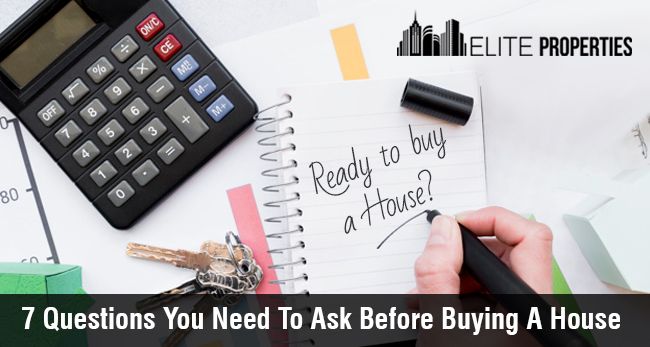Buying a house is one of the most massive financial decisions a person will ever make. So it’s important that you’re completely confident that you’ll be able to manage your mortgage before you commit to it. Don’t just find the perfect home and rush into something you aren’t ready for. Take time to consider these questions, and make sure your finances are in order before you move ahead with your house search. Check out this guide on ‘7 Questions You Need To Ask Before Buying A House and learn more about whether or not you are ready to buy a house.
Here are some deciding factors to determine whether you may buy a house or not.
1. Do You Have Enough Capital For A Down Payment for Buying a House?
Having a 20% down payment is one of the most common perceptions while buying a house for the first time. Although, it’s not completely the truth. A homeowner needs a minimum of 3.5% – 10% for an FHA home loan and around 3% – 5% for a conventional loan.
For example: If you want to purchase a house worth $900,000 your lender will require a total of 3% as a down payment depending on the type of loan you qualify for. Hence, 3% of $900,000 will be $27,000 as the down payment.
The only thing to remember is the larger the down payment the lesser will be your EMIs and interest. Although, in a lower down payment you are entitled to pay Private Mortgage Insurance (PMI) that protects your lender in case you don’t pay your mortgage. This is only applied when you put less than 20% downpayment, the PMI will be added to the monthly payments.
2. Do You Have A Good Amount Of Savings And Emergency Funds?
You may have saved enough money while thinking about making a big down payment, but did you think about closing costs? Closing costs include multiple fees like legal fees, lender fees, taxes, etc. The total is usually 2%-5% of the home’s purchase price. Additionally, there are many things that show up while a home inspection related to home improvement which you might want to care of. If the septic tank is leaking or there are cracks in the ceiling, this is where you’ll need emergency funds.
3. How is your credit score?
The first thing homebuyers think of is having a perfect credit score with no red dots. Although, the truth is you don’t need to have a perfect credit score to buy a house. There are multiple home loan and homebuyer programs available for first-time homebuyers that do not require a perfect score. Furthermore, a minimum credit score of 600 or higher is favorable. Keep in mind a high score (that is above 700) will aid in qualifying for a lower mortgage rate.
4. Worried About Having A Handle On Your Debt?
Buying a home doesn’t mean you have to be debt-free. You might have an outstanding student loan, car loan, bills, etc. which makes purchasing a home difficult. Fortunately, many companies these days understand it is impossible to expect potential homebuyers to be debt-free. The main objective of most companies is to know if you will be able to fulfill the mortgage payments. Keep in mind the savings you have versus how much you’ll pay in the future.
Your lender will have a look at your debt-to-income ratio, which simply means what chunk of your monthly income goes into debt payments. You need to have a 43% debt-to-income ratio to qualify for any mortgage on the house.
5. Can You Afford Your Monthly Expenses for Buying a House?
The first while figuring out expenses is to know if you can afford additional payments to your existing monthly expenses. To calculate this you can use an online mortgage calculator. Additionally, you must also check with the other financial aspects like –
- Property insurance and taxes
- Other Home expenses (sewage, garbage, internet, etc.)
- Utilities (water, electricity, etc.)
- Home Owner Association (HOA) fees (if applicable)
It is vital to do your calculations before you move on with the transition from renting to buying your house. As you might be paying multiple bills already and there’s going to be an additional amount as a mortgage payment.
6. Do You Have A Stable Income Source for Buying a House?
Having a stable job is extremely important for home buyers as losing a job after moving into a new house can be a nightmare. A stable job is a good indicator for lenders as then qualifying for a mortgage and fulfilling the amount is possible. Furthermore, even if you can show financial stability on paper, you must only buy a house knowing your income will remain steady in the future.
7. How Much Space Do You Need?
Before buying a house always ask yourself the question ‘how much space do you need?’ While planning on money and other aspects you may forget this important aspect. Whether you need an extra room for office space or a gym thinking through it is always advisable. If you have kids or expecting a child, then buying a house with extra space is ideal.
Takeaways
Buying a house comes with a long list of questions and contingencies. Make sure you think through the options and make a wise decision. If you’re someone who wants to sell your house fast before moving to a new one you may contact us at Elite Properties. We’re ‘we buy houses all cash’ company which offers people home selling and buying services with no obligations. You can get in touch with us by calling 718-977-5462.


Leave a Reply
You must be logged in to post a comment.